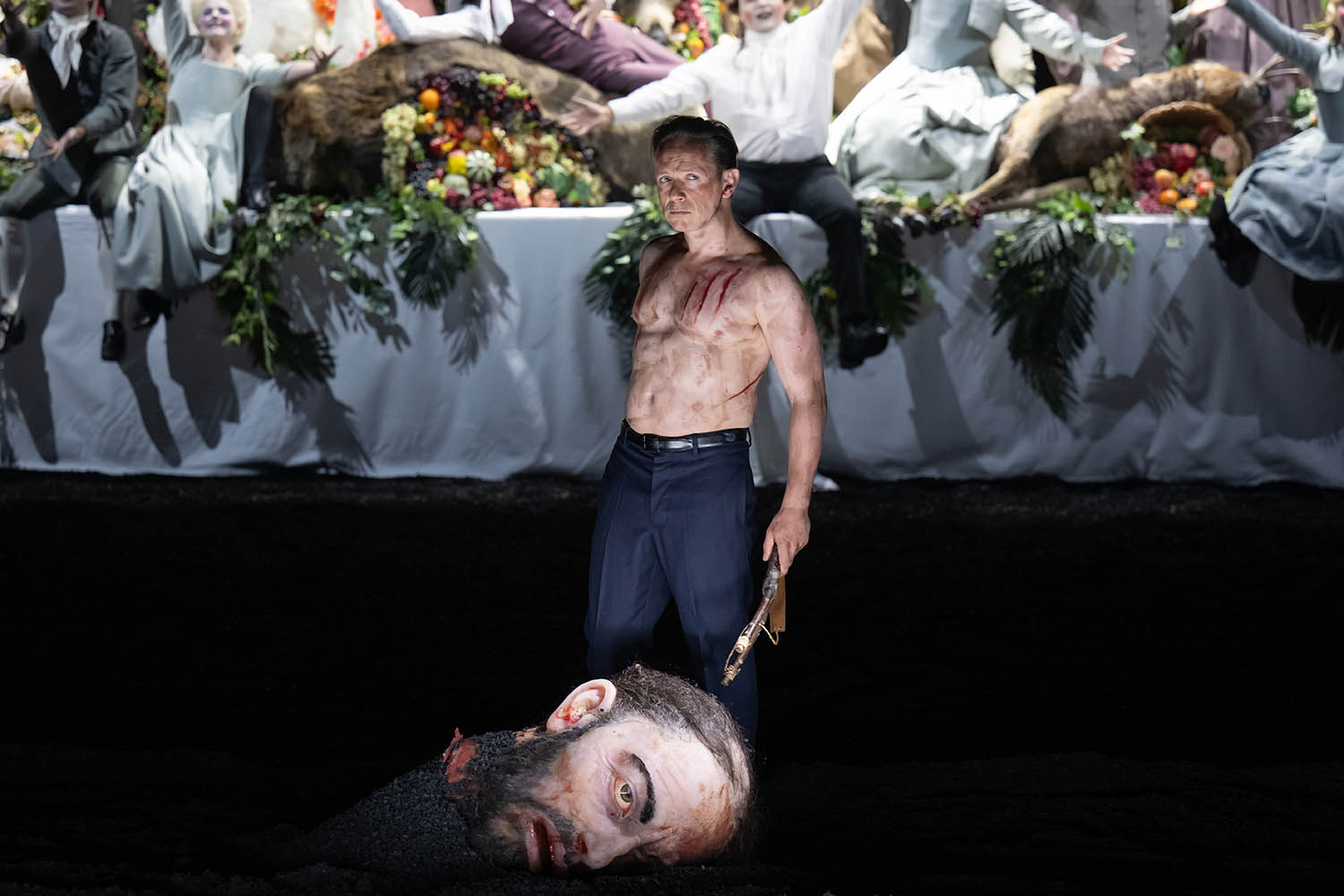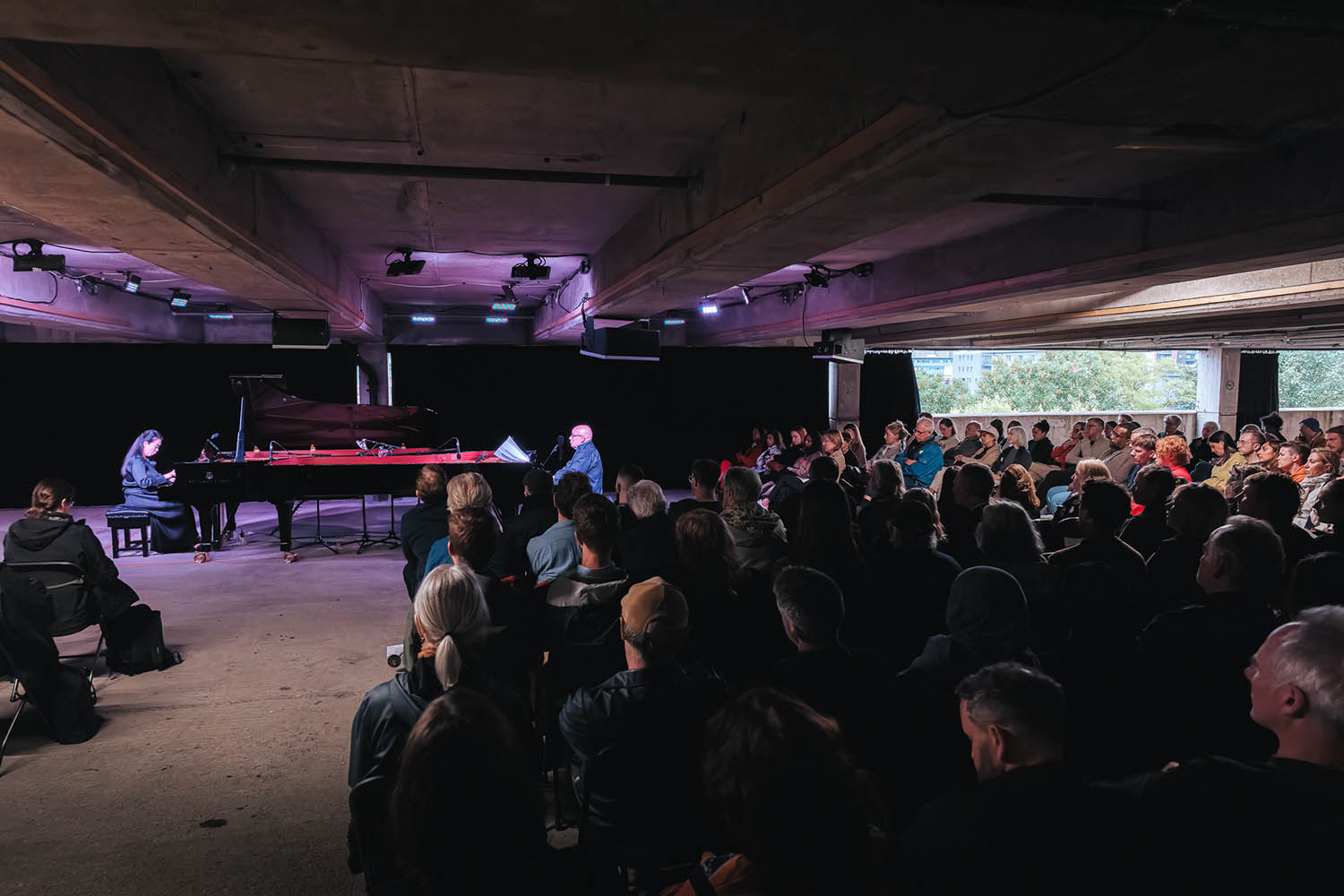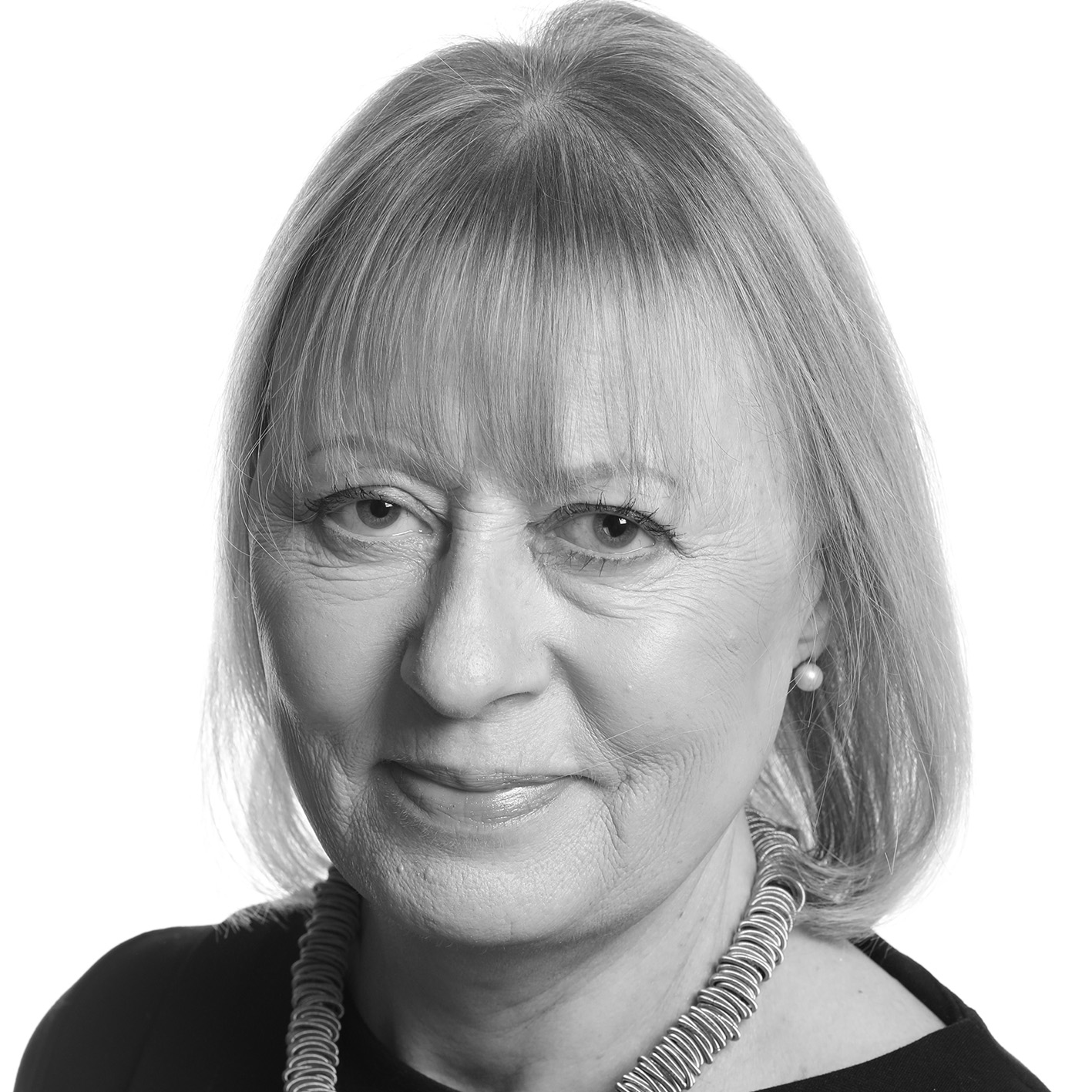In the all-over-again mystery of deja vu, the waking mind is at its most tricksy. Memory plays false. The frontal cortex, in its fact-checking mundanity, jumps in and says no, not possible, this never happened. The moment passes, the enigma remains. Is it, as the late Victorians who first used the term hoped, a psychic phenomenon that cheats the finality of death? Deja vu is the theme of this year’s Bold Tendencies season: concerts in a brutalist multi-storey car park in south London that lead the way in challenge and experiment.
The programme this year includes JS Bach’s complete cello suites, The Art of Fugue and Goldberg Variations, all Rachmaninov’s piano concertos in one night and the world premiere of a new epic by Oliver Leith. This last is for massed forces including a choir “augmented by a horse, bicycles, car and other pedestrian detritus”. It’s a while since a car has found its way into this former supermarket car park, which shut in 1992. Deja vu indeed.
The opening night, wind and rain adding drama to spectacle, featured works by Stravinsky, John Cage, Keith Jarrett and Philip Glass, played together or apart on two pianos by the Japanese-American duo of Maki Namekawa and Dennis Russell Davies. Stravinsky’s choral Symphony of Psalms (1930) casts old rituals – of Russian orthodoxy, and Renaissance and baroque habits – in modern angularity. Here we heard the two-piano version arranged by Shostakovich. Stripped of voices and orchestra this work, at once cool and gleaming yet full of shadows, acquired a new transparency.
These two musicians are closely associated with Jarrett. Namekawa recreated his Köln Concert (1975) at Bold Tendencies last summer. Last week she gave the UK premiere of his Ritual, itself premiered by Davies in 1977. This diffuse work darts towards but never quite matches the focused vamps and songlike deliverance of the Köln event. In his own solo slot, Davies was an expressive advocate for Cage’s ballet score for Merce Cunningham, The Seasons (1947): Cage at his most reflective, making early experiments with numbers and proportions that the listener may never hear, but paying lyrical homage to the earth-sun divisions of the year.
Longstanding interpreters of Glass’s music, the duo closed with his Four Movements for Two Pianos (2008), multiple rhythms building up then releasing in beguiling complexity, written for them. Whether you embrace Glass’s style of American minimalism or not, his position as one of the most influential musicians of the past half century is indisputable. Seeing his handwritten score open on the two Steinway grands transported unknown memories of old New York loft culture to south London. Anywhere can be an epicentre of music if it wants.
Played like this, Beethoven’s Op 110 expresses the entire human condition
Played like this, Beethoven’s Op 110 expresses the entire human condition
One of the pianists braving the semi-open-air concrete concert hall for the first time this year is Boris Giltburg, who will perform Rachmaninov’s Piano Concerto No 3 (13 September). Performers adapt with determined willingness, or willing determination, to the rumble of trains and Saturday night urban noise that is part of the Bold Tendencies experience. Music is immersed in the world rather than sequestered. In the hushed acoustic of Wigmore Hall, Giltburg is nearing the end of his complete cycle of Beethoven’s 32 piano sonatas. I heard the two most recent concerts (the last is on 5 July; all are streamed). A deep thinker about this music, Giltburg recorded the complete set in 2021. Lithe, flexible, insightful, his playing is muscular but never overstated, always without ego. In the “Appassionata”, Op 57, he hurled himself fearlessly at the cascade of octaves and arpeggios in the presto finale, more interested in musical direction and shape than safety.

Iestyn Davies as David, and company, in Glyndebourne’s Saul: ‘a beloved production’
In the composer’s penultimate sonata, No 31 in A flat, Op 110, Giltburg took us to the heart of Beethoven’s genius, as much steeped in vulnerability as power. The slow arioso, marked on the score as “losing strength, sorrowful”, is a sobbing lament that sits, haltingly, on gently pulsing left-hand chords. When the anguish reaches a point of apparently no return, the music shifts, with one move, to major chord sunlight, and the sonata swings into a fugue. There’s always a danger in attributing verbal meaning to abstract music even when, as here, the composer gives us clues. Op 110 expresses the entire human condition, or it does when played with this level of thought, virtuosity and conviction.
Handel’s Saul, in Barrie Kosky’s wildly over-the-top staging, is back at Glyndebourne for its second festival revival, conducted by Jonathan Cohen. Remarkably, or perhaps not, both Christopher Purves as the biblical king of the title and Iestyn Davies as the young warrior David are as suited to their roles as when the production was new in 2015. Purves, in robust voice, chillingly convinces as a leader destroyed by rage and jealousy. Davies sings with customary glowing beauty. Together with Glyndebourne chorus and the Orchestra of the Age of Enlightenment, they are joined by Sarah Brady and Soraya Mafi, excellent as Saul’s daughters Merab and Michal, and Linard Vrielink as their ill-fated brother Jonathan.
This is a beloved production, with highest musical standards and its own crazed Kosky-esque coherence. The visual qualities stand out as freshly as before, the feasting table of dead birds, beasts, flowers and fruit gorgeous as ever. I had less appetite, this time, for the wigglings and jigglings of the (well-sung) chorus and dancers, and a demented Saul suckling at the breast of the Witch of Endor (Ru Charlesworth) is not, for some inexplicable reason, a treasured memory. On the other hand the organ solo, revolving on a stage lit by hundreds of candles and sinking into darkness, remains unforgettable.
Saulruns at Glyndebourne, East Sussex, until 24 July
Newsletters
Choose the newsletters you want to receive
View more
For information about how The Observer protects your data, read our Privacy Policy
Photographs by Dan John Lloyd and Ash

